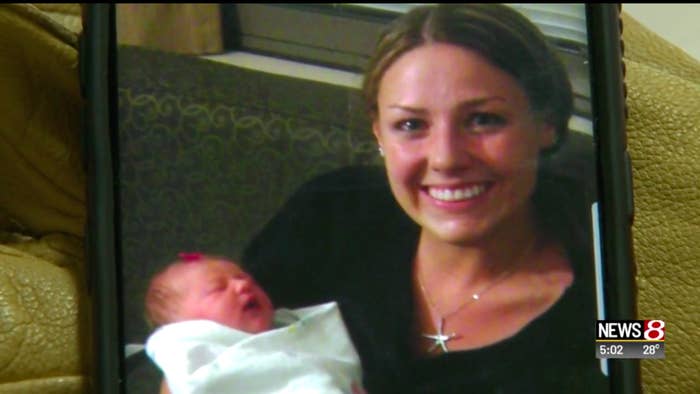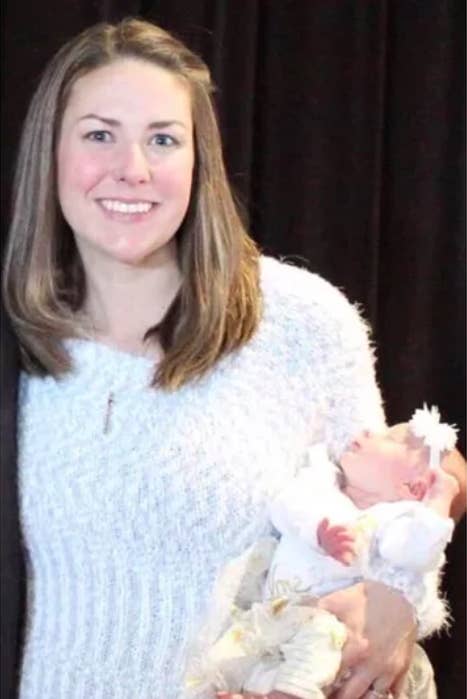
An Indiana mother is facing charges after her 3-month-old daughter was found dead in her car.
Rachel McAfee and her daughter, Emma, were reported missing by McAfee's husband on Monday. The search ended in tragedy on Tuesday when McAfee's vehicle was located with her, and her daughter's body, inside.
"Despite life-saving efforts, Emma McAfee was pronounced deceased at the scene," said a release from the Indianapolis Metropolitan Police Department. Her cause of death is currently unknown, pending an autopsy.
McAfee was taken to the hospital and is now facing a preliminary charge of neglect of a dependent causing death. The penalty for the charge is 20 to 40 years in prison and a fine of up to $10,000.
McAfee's husband, John McAfee, told News 8 that his wife had been dealing with postpartum depression and alcoholism following Emma's birth.
"It's up and down," he told the station. "When she's sober, she'll listen and have discussions. When she's drinking, she just completely throws everything out the window and starts over back at scratch."

Though strides have been made to lessen the stigma around postpartum depression, there's still an element of the taboo for a mother to admit to feeling anything less than joyous after having a child.
Dr. Sue Varma, a New York City–based psychiatrist, told BuzzFeed News that about 15% of new moms will experience postpartum depression. Varma did not treat McAfee, but specializes in women's mental health and postpartum issues.
"It often goes unnoticed. Women are told they are just anxious about having a baby — they will get over it the minute they meet their new baby," she said.
Many women experience what's called the "baby blues" after giving birth — a short period of depression, anxiety, and trouble sleeping. That tends to resolve itself with a couple of weeks, but postpartum depression lasts much longer.
Postpartum depression is marked not just by feeling down, but intense feelings of sadness and despair that makes it difficult to perform normal tasks. It doesn't resolve itself like the "baby blues" and mothers find themselves unable to bond with their baby.
"Women sometimes will experience increased anxiety about the baby, will be unable to sleep even though they are tired and the baby is sleeping, have excessive worry, [and] ruminations that the baby will die when sleeping," said Varma. "They may feel exasperated, numb, or checked out."
There are many causes — a change in hormones, a lack of sleep, being exhausted from child care, the societal pressures to be the perfect mom, having trouble breastfeeding — and the condition is typically treated with antidepressants and therapy. Varma said having a prior history of depression or a family history of mental illness increases the odds.
Some women turn to substance abuse as a means to cope.
"Unfortunately many women don't tell their doctors they are using substances. Often patients feel that their doctors wouldn't understand, approve, or shame them, so they don't tell them and continue using while pregnant and afterwards," said Varma.
"Our society doesn't allow space for these kind of conversations, so it goes untreated in pregnancy and of course continues afterwards."
More rarely — in about 1 or 2 per 1,000 births — postpartum depression turns into what's called postpartum psychosis, characterized by delusions, paranoia, rapid mood swings, and hallucinations. Sometimes, mothers having the urge to harm themselves or their babies.
"This is rare, tragic and very unfortunate," said Varna.
